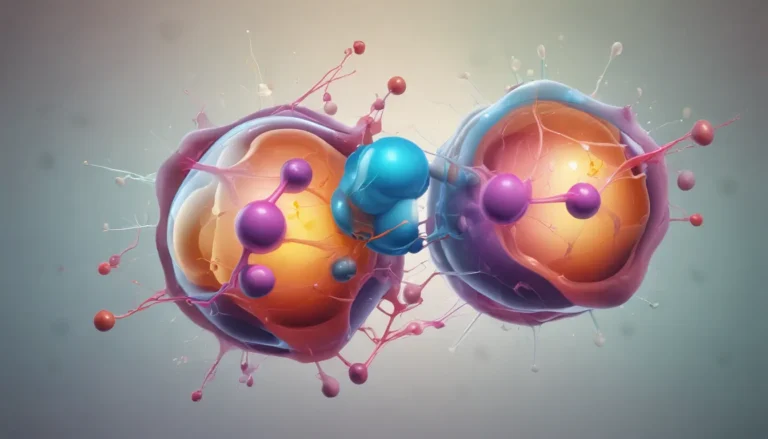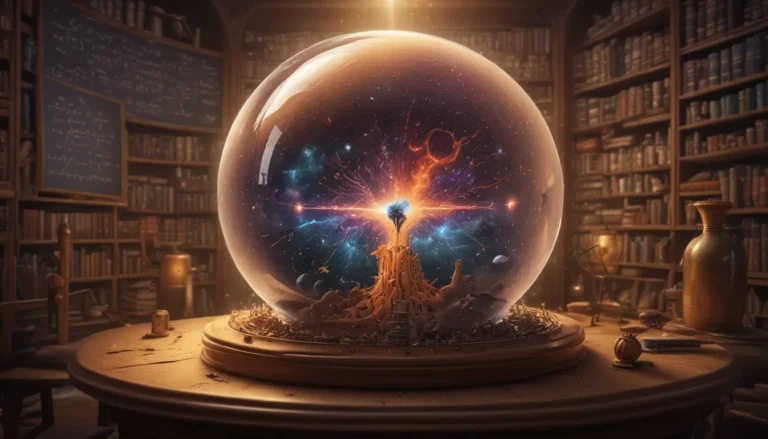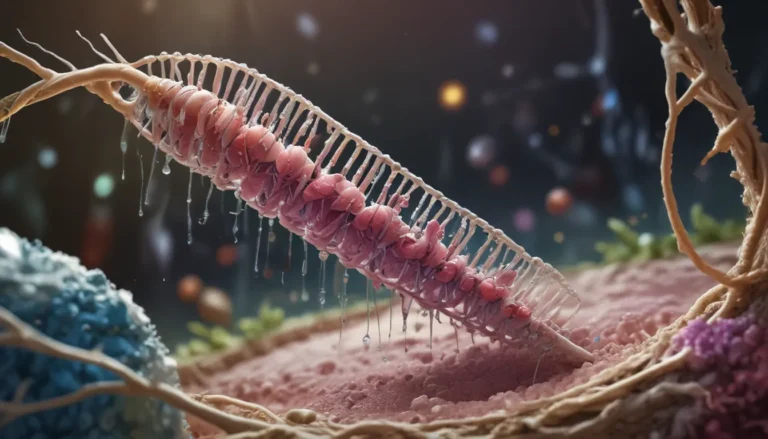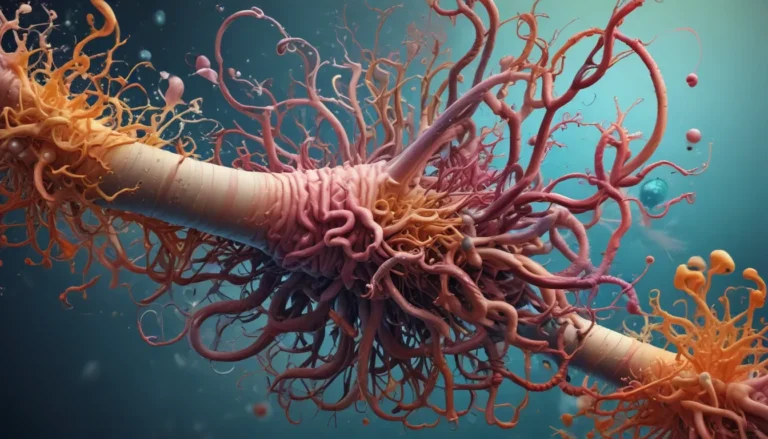A Note About Images: The images used in our articles are for illustration purposes only and may not exactly match the content. They are meant to engage readers, but the text should be relied upon for accurate information.
Chemistry, the enchanting realm of atoms and molecules, encompasses a myriad of processes that occur on a molecular scale. Fundamental to understanding chemical reactions is unraveling the intricate details of their reaction mechanisms. These mechanisms serve as blueprints, guiding us through the step-by-step processes that unfold during a chemical reaction, revealing the intermediates, transition states, and energy changes involved.
In this article, we invite you to embark on a journey through the captivating world of reaction mechanisms. Prepare to be amazed as we uncover 11 unbelievable facts that highlight the complexity and beauty of chemical transformations. So buckle up and get ready to explore the inner workings of reactions as we delve into these jaw-dropping insights about reaction mechanisms.
Peering into the Heart of Chemical Transformations
Reaction mechanisms offer a detailed roadmap of how reactants evolve into products. They elucidate the sequence of elementary steps and the intermediates that participate in a reaction, providing us with valuable insights into the intricate dance of atoms and molecules.
Catalysts: Agents of Transformation
Catalysts are the unsung heroes of chemical reactions, accelerating the process by lowering the activation energy. They facilitate reactions under milder conditions and play a pivotal role in various industrial processes, enhancing efficiency and productivity.
Elementary Reactions: Building Blocks of Transformation
Elementary reactions are the foundational steps that constitute a reaction mechanism. They involve the collision and interaction of individual molecules, atoms, or ions, laying the groundwork for the overall reaction pathway.
Unveiling Reactive Intermediates
Reactive intermediates are transient species that materialize during a reaction, serving as crucial links between different elementary steps. These elusive players, such as free radicals and carbocations, contribute significantly to the progression of chemical transformations.
The Significance of Rate-Determining Steps
The rate-determining step acts as the pacemaker of reactions, dictating the overall rate of the process. Understanding this slowest step is essential for comprehending the timing and kinetics of the reaction, influencing the outcome significantly.
Navigating Transition States
Transition states mark the high-energy crossroads in a chemical reaction, representing the peaks of energy along the reaction pathway. These fleeting structures provide essential information about the energy barriers involved in the transformation.
Delving into Stereochemistry
Stereochemistry ventures into the three-dimensional world of molecules, exploring the spatial arrangement of atoms and groups and its impact on reactions. Concepts like chirality and enantiomers offer valuable insights into the diverse behavior of reaction mechanisms.
Unraveling Reaction Kinetics
Reaction kinetics delves into the study of reaction rates and the factors that influence them. This branch of chemistry sheds light on the speed at which reactions occur, enabling us to optimize reaction conditions effectively.
Exploring Acid-Base Reactions
Acid-base reactions involve the transfer of protons between molecules, essential for maintaining pH balance and facilitating biochemical processes. These reactions play a vital role in numerous industrial and biological processes.
The Art of Supramolecular Chemistry
Supramolecular chemistry investigates the interactions between molecules, leading to the formation of well-defined structures through non-covalent bonds. These interactions are pivotal in biological processes and can influence reaction mechanisms significantly.
Harnessing the Power of Computational Methods
Computational methods, such as quantum mechanics and molecular dynamics simulations, have revolutionized our understanding of reaction mechanisms. These technological advancements allow scientists to explore reactions virtually, offering profound insights into reaction kinetics and pathways.
As we uncover these 11 unbelievable facts about reaction mechanisms, we gain a newfound appreciation for the intricate nature of chemical transformations. From the role of catalysts and reactive intermediates to the exploration of kinetics and stereochemistry, reaction mechanisms open a window into the mesmerizing world of chemical reactions.
Conclusion: Decoding the Secrets of Chemical Transformations
Understanding reaction mechanisms is paramount in the realm of chemistry, providing us with vital insights into how molecules interact and metamorphose during a reaction. The 11 unbelievable facts we’ve explored shed light on the complexity and beauty of chemical processes, offering a deeper understanding of the world around us.
By deciphering reaction mechanisms, scientists can not only explain and predict the outcomes of reactions but also design new reactions with specific properties. As we journey through the captivating world of chemistry, there is still much to discover about reaction mechanisms, unraveling the mysteries of the molecular world and advancing our comprehension of life’s building blocks.
FAQs: Navigating the Realm of Reaction Mechanisms
Q: What is a reaction mechanism?
A: A reaction mechanism is a step-by-step sequence of elementary reactions that elucidates how reactants rearrange to form products during a chemical reaction.
Q: Why is understanding reaction mechanisms important?
A: Understanding reaction mechanisms allows scientists to predict and control chemical reactions, aiding in drug development, catalyst design, and process optimization.
Q: How are reaction mechanisms determined?
A: Reaction mechanisms are determined through a combination of experimental observations, theoretical models, and computational simulations.
Q: What is the role of catalysts in reaction mechanisms?
A: Catalysts accelerate chemical reactions by providing an alternative reaction pathway with lower activation energy, remaining unchanged at the end of the reaction.
Q: Can reaction mechanisms be influenced or controlled?
A: Yes, reaction mechanisms can be influenced or controlled by adjusting reaction conditions, such as temperature, pressure, and the presence of catalysts or inhibitors.
Q: How do chemists study reaction mechanisms?
A: Chemists study reaction mechanisms using a combination of experimental techniques, theoretical methods, and computational simulations to gain insights into molecular transformations.
Exploring the Intriguing World of Chemistry
Reaction mechanisms offer a glimpse into the captivating world of chemistry, unveiling the intricate processes that govern chemical transformations. From elementary steps to rate constants, from reactive intermediates to transition states, each facet of a reaction mechanism adds a layer of complexity to our understanding of chemical reactions.
As we continue to delve into this enigmatic realm, we stand on the brink of new discoveries that will deepen our appreciation for the wonders of chemistry. Join us on this journey as we unravel the secrets of reaction mechanisms and unlock the mysteries of the molecular world!






